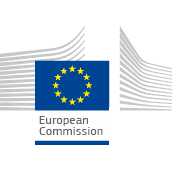
Action grants to support transnational projects to enhance the rights of persons suspected or accused of crime and the rights of victims of crime - JUST-JACC-AG-2017
Date de clôture : 12 oct. 2017
APPEL À PROJET CLÔTURÉ
APPEL À PROJET CLÔTURÉ
Victimes de la torture
Justice
Programme de justice
Sécurité publique
Violence
Droits de l'homme
Scope:
The aims of this call are:
a) to contribute to the effective and coherent application of EU criminal law in the area of the rights of persons suspected or accused of crime (procedural rights priority), and
b) to contribute to the effective and coherent application of EU criminal law in the area of the rights of victims of crime (victims' rights priority).
In both priorities actions may include forward looking initiatives regarding gaps in EU legislation where further needs for EU actions are called for. Training activities can also be funded under this call, as long as they are of ancillary nature and not the main purpose of the project. Projects ensuring maximum practical benefits and impact for the target groups will be more favorably assessed than theoretical projects consisting mainly of research and other analytical activities. Successful project shall ensure easy access to and wide dissemination of its results.
Priority 1: Procedural rights
The main legislative measures concerned within this priority include in particular:
- Directive 2013/48/EU on the right of access to a lawyer and to communicate upon arrest;
- Directive (EU) 2016/343 on the strengthening of certain aspects of the presumption of innocence and the right to be present at one's trial
- Directive (EU) 2016/800 on procedural safeguards for children who are suspected or accused persons in criminal proceedings
- Directive (EU) 2016/1919 on legal aid for suspects and accused persons in criminal proceedings and for requested persons in European arrest warrant proceedings.
Description of the activities to be funded under this priority
- analytical activities, such as data collection and creation of data bases, surveys, research etc;
- mutual learning, exchange of good practices, development of working methods which may be transferable to other participating countries;
- exchange and provision of information and development of information tools;
- capacity building for professionals;
- facilitating cooperation between competent authorities agencies, legal practitioners and/or service providers (including multi-disciplinary networks at EU , national, regional or local levels);
- Dissemination and awareness raising activities.
Expected results under this priority
- increased capacity of national practitioners to address issues related to the rights of persons suspected or accused of crime;
- strengthened cooperation and exchange of information between competent national authorities in relation to the rights of persons suspected or accused of crime;
- improved knowledge on the legislation and administrative practices related to specific provisions of the EU acquis regulating the rights of suspects and accused in criminal proceedings;
- harmonisation of the administrative practices in relation to the relevant legislation in different Member States;
- reduced risks of breaches of fair trial rights;
- compatibility of the national legal framework and regulations linked to the rights of persons suspected or accused in criminal proceedings with EU acquis;
- improved cooperation of NGOs and professional organisations in the field of the rights of persons suspected or accused of crime;
- Increased awareness of the relevant policy makers on the rights of persons suspected or accused of crime ;
Priority 2: Victims' rights
The main legislative measures concerned within this priority include in particular:
- Directive 2012/29/EU establishing minimum standards on the rights, support and protection of victims of crime
- Council Directive 2004/80/EC of 29 April 2004 relating to compensation to crime victims
- Directive 2011/99/EU on the European Protection Order[1]; and Regulation (EU) 606/2013 on mutual recognition of protection measures in civil matters[2];
Description of the activities to be funded under this priority
- mutual learning, exchange of good practices, development of working methods which may be transferable to other participating countries;
- exchange and provision of information and development of information tools;
- capacity building for professionals;
- facilitating cooperation between competent authorities, including national experts dealing with the aspects covered by this call, agencies, legal practitioners and/or service providers (including networks at EU, national, regional or local levels);
- communication activities including dissemination of information about victims' rights and activities aimed at raising awareness of the existing rules on victims' rights at EU and national levels;
- training activities can also be funded under this call, as long as they are of ancillary nature and not the main purpose of the project;
- analytical activities, such as data collection and creation of data bases, surveys, research.
Expected results under this priority
- increased capacity of national practitioners to address issues related to the rights of victims of crime;
- improved cooperation among the competent national authorities, NGOs and professional organisations in the field of victims' rights;
- improved public awareness and knowledge about victims' rights at both EU and national level;
- improved knowledge about specific provisions of the EU acquis regulating the issues such as referring victims to the relevant support services, victims' access to information in the area of victims' rights, individual assessment of victims' needs.
- compatibility of the national legal framework and administrative practice related to victims' rights with the relevant EU acquis;
- increased number of victims' support organisations providing general and specialist support services to victims of crimes and their family members, in particular in those Member States who currently do not provide such services or provide them in unsufficient manner;
- increased quality of the services provided by victims support organisations;
- enhanced cooperation among the relevant national authorities responsible for compensation in cross-border cases under the Directive on compensation (Directive 2004/80/EC)
Lien officiel : Disponible pour les utilisateurs enregistrés




S'il vous plaît Se connecter pour voir cette section